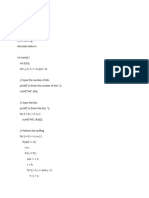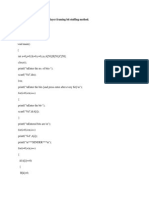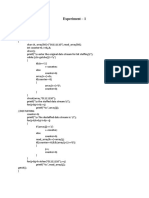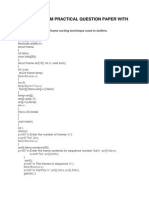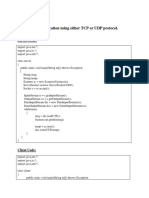0% found this document useful (0 votes)
23 views14 pagesComputer Networks Lab
The document contains multiple programming tasks related to computer networks, including a CRC-CCITT error detection program, a frame sorting program, a link state routing algorithm, and client-server file transfer implementations using FIFOs and TCP/IP sockets. Each task includes C code examples and expected outputs demonstrating their functionality. The programs cover various networking concepts such as error detection, message framing, routing algorithms, and inter-process communication.
Uploaded by
rahil.raipuria2003Copyright
© © All Rights Reserved
We take content rights seriously. If you suspect this is your content, claim it here.
Available Formats
Download as PDF, TXT or read online on Scribd
0% found this document useful (0 votes)
23 views14 pagesComputer Networks Lab
The document contains multiple programming tasks related to computer networks, including a CRC-CCITT error detection program, a frame sorting program, a link state routing algorithm, and client-server file transfer implementations using FIFOs and TCP/IP sockets. Each task includes C code examples and expected outputs demonstrating their functionality. The programs cover various networking concepts such as error detection, message framing, routing algorithms, and inter-process communication.
Uploaded by
rahil.raipuria2003Copyright
© © All Rights Reserved
We take content rights seriously. If you suspect this is your content, claim it here.
Available Formats
Download as PDF, TXT or read online on Scribd
/ 14












